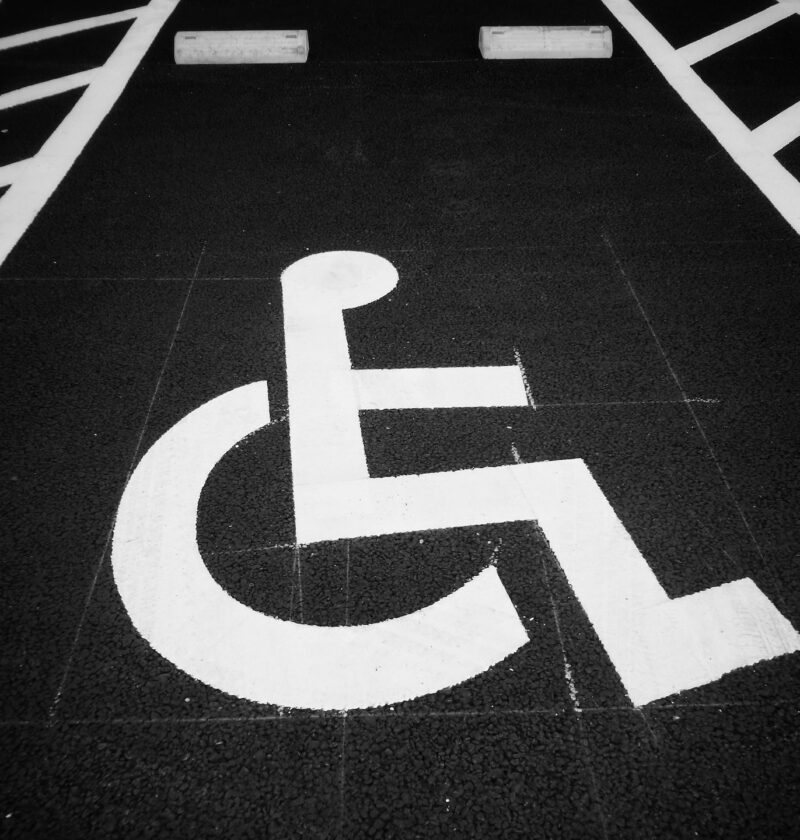Living with blindness can present numerous challenges, including financial difficulties. Fortunately, the Social Security Administration (SSA) provides support through Social Security Disability Insurance (SSDI) benefits for individuals living with blindness. These benefits can be a lifeline for those who are unable to work due to their visual impairment.
To qualify for SSDI benefits for blindness, individuals must meet specific criteria set by the SSA. The first requirement is that the individual must have a visual acuity or visual field limitation that meets the SSA’s definition of statutory blindness. This means that their vision is severely impaired, and it affects their ability to perform substantial gainful activity (SGA), which refers to the ability to earn a certain income level through work.
Additionally, individuals must have a sufficient work history and have paid into the Social Security system through payroll taxes. The SSA uses a credit-based system to determine eligibility, with the number of credits required depending on the age at which the blindness occurred. Understanding these requirements is crucial for anyone seeking SSDI benefits for blindness.
Qualifying for SSDI Benefits for Blindness
To qualify for SSDI benefits for blindness, individuals must have a visual acuity or visual field limitation that meets the SSA’s definition of statutory blindness. The SSA considers someone to be statutorily blind if their visual acuity is 20/200 or worse in their better eye, even with the use of corrective lenses. They may also qualify if their visual field is limited to 20 degrees or less, also known as tunnel vision.
In addition to meeting the visual impairment criteria, individuals must also meet the work history requirements set by the SSA. The SSA uses a credit-based system, where individuals earn credits based on their work history and the amount of income they earn. The number of credits required to qualify for SSDI benefits increases with age.
For example, individuals who become blind before the age of 24 need to have earned six credits in the three years leading up to their blindness. On the other hand, individuals who become blind after the age of 31 need to have earned at least 20 credits in the 10 years before their blindness.
Understanding these qualifications is essential when navigating the application process for SSDI benefits for blindness. However, the process can be complex, and seeking legal help can greatly increase the chances of a successful application.
How South Carolina Lawyers Can Assist with SSDI Benefits for Blindness
Navigating the application process for SSDI benefits for blindness can be overwhelming, especially for individuals who are already dealing with the challenges of visual impairment. Ssdi benefits for blindness lawyers south carolina can provide valuable assistance throughout the entire process.
First and foremost, a South Carolina lawyer can help determine if an individual meets the eligibility criteria for SSDI benefits for blindness. They have a deep understanding of the SSA’s requirements and can assess whether the individual’s visual impairment qualifies them for benefits. This initial assessment is crucial as it sets the foundation for a successful application.
Once eligibility is established, a lawyer can guide the individual through the application process. This includes gathering all the necessary documentation, such as medical records and employment history, and ensuring that the application is complete and accurate. Lawyers can also help individuals understand the various forms and paperwork required by the SSA, simplifying a complex and often confusing process.
Furthermore, South Carolina lawyers can advocate on behalf of individuals during the review and decision-making stages of the application process. They can communicate with the SSA, provide additional evidence if necessary, and address any questions or concerns that may arise. Having a legal professional by their side can alleviate stress and increase the chances of a favorable outcome.
The Importance of Seeking Legal Help for Navigating SSDI Benefits for Blindness
Seeking legal help for navigating SSDI benefits for blindness is of utmost importance. The application process can be complex and time-consuming, and a single mistake or oversight can result in a denial of benefits. For individuals living with blindness, this can be devastating, as they rely on these benefits to maintain their livelihood.
South Carolina lawyers who specialize in SSDI benefits for blindness have the necessary expertise to navigate the intricacies of the application process. They understand the SSA’s requirements and know what evidence is needed to support a claim. By seeking legal help, individuals can ensure that their application is accurate, complete, and presents their case in the most favorable light.
Additionally, lawyers can provide guidance and support throughout the appeals process if an initial application is denied. They can help individuals understand the reasons for the denial, gather additional evidence, and prepare a strong case for reconsideration. Having a lawyer by their side can significantly increase the chances of success in the appeals process.
The Application Process for SSDI Benefits for Blindness
Applying for SSDI benefits for blindness involves a multi-step process that requires careful attention to detail. The application should be completed accurately and supported by the necessary documentation to ensure a smooth review by the SSA. Here is an overview of the application process:
- Gather Documentation: Before starting the application, gather all relevant documentation, including medical records, employment history, and any other evidence that supports the visual impairment claim. It is important to have a comprehensive record of the impairment and its impact on daily life.
- Submit Supporting Evidence: Along with the application, submit all supporting evidence that validates the visual impairment claim. This can include medical reports, test results, and statements from healthcare providers. The more comprehensive the evidence, the stronger the case will be.
- Review and Decision: Once the application is submitted, it will be reviewed by the SSA. This review process can take several months, during which the SSA will assess the eligibility and severity of the visual impairment. If additional information is needed, the SSA may request it from the applicant or their healthcare providers.
- Notification of Approval or Denial: After the review process, the applicant will receive a notification from the SSA regarding the approval or denial of their application. If approved, the applicant will start receiving SSDI benefits for blindness. If denied, there is an appeals process that can be pursued with the help of a South Carolina lawyer.
Understanding and following these steps is crucial for a successful application. However, it is important to note that the application process can be complex, and the assistance of a South Carolina lawyer can greatly increase the chances of a favorable outcome.
Common Challenges
While SSDI benefits for blindness are designed to provide support to individuals living with visual impairment, the application process can be challenging and overwhelming. Here are some common challenges that applicants may face:
- Lack of Sufficient Medical Evidence: Providing comprehensive and up-to-date medical evidence is crucial in proving the severity of the visual impairment. However, some applicants may struggle to gather all the necessary documentation or may not have access to regular healthcare providers. This can lead to a lack of sufficient medical evidence, which may result in a denial of benefits.
- Difficulty Communicating the Impact of Visual Impairment: Describing the impact of visual impairment on daily life can be challenging, especially for individuals who have lived with it for a long time. It is important to effectively communicate the limitations and challenges faced due to the visual impairment to ensure the SSA understands the severity of the condition.
- Understanding the SSA’s Requirements: The SSA has specific requirements and criteria for SSDI benefits for blindness. Understanding these requirements can be challenging for individuals who are not familiar with the system. This lack of knowledge can lead to misunderstandings or misinterpretations of the eligibility criteria, which may result in a denial of benefits.
It is important to address these challenges proactively to increase the chances of a successful application. Seeking legal help from a South Carolina lawyer who specializes in SSDI benefits for blindness can alleviate these challenges and ensure a smooth application process.
The Role of a Lawyer
If an initial application for SSDI benefits for blindness is denied, applicants have the right to appeal the decision. The appeals process can be complex and time-consuming, requiring a thorough understanding of the SSA’s regulations and requirements. This is where the role of a South Carolina lawyer becomes crucial.
Lawyers for SSDI benefits
A lawyer specializing in SSDI benefits for blindness can guide individuals through the appeals process, offering expert advice and support at every stage. Here are some ways in which a lawyer can assist during the appeals process:
- Reviewing the Denial Decision: A lawyer will thoroughly review the denial decision and assess the reasons provided by the SSA. They will identify any errors or misunderstandings that may have contributed to the denial and develop a strategy to address them.
- Gathering Additional Evidence: A lawyer can help gather additional evidence to strengthen the appeal. This may involve obtaining updated medical records, arranging for expert opinions, or collecting testimonies from individuals who can attest to the impact of the visual impairment on the applicant’s daily life.
- Preparing the Appeals Package: A lawyer will prepare a comprehensive appeals package that addresses the reasons for the denial and presents a strong case for reconsideration. This package will include all relevant documentation, legal arguments, and a clear explanation of how the visual impairment meets the SSA’s criteria.
- Representation in Administrative Hearings: If the appeal progresses to an administrative hearing, a lawyer can provide representation and advocate for the applicant’s rights. They will present the case before an administrative law judge, cross-examine witnesses, and argue for the approval of the SSDI benefits for blindness.
Having a lawyer by their side during the appeals process can significantly increase the chances of a successful outcome. They have the expertise and knowledge necessary to navigate the complex legal landscape and present a compelling case on behalf of the applicant.
Conclusion
Navigating SSDI benefits for blindness can be a challenging and complex process. Understanding the eligibility criteria, gathering the necessary documentation, and completing the application accurately are crucial steps towards receiving the benefits one deserves. However, the process can be overwhelming, especially for individuals already dealing with visual impairment.
Seeking legal help from South Carolina lawyers who specialize in SSDI benefits for blindness is essential. These lawyers have the expertise and experience to guide individuals through the entire process, ensuring that their rights are protected and that they have the best chance of receiving the benefits they deserve. From determining eligibility to navigating the appeals process, a lawyer can provide invaluable assistance and support.
If you or a loved one is living with blindness and in need of SSDI benefits, don’t hesitate to seek the help of a South Carolina lawyer. Your financial security and well-being are at stake, and a lawyer can be your advocate in ensuring that you receive the support you need.







